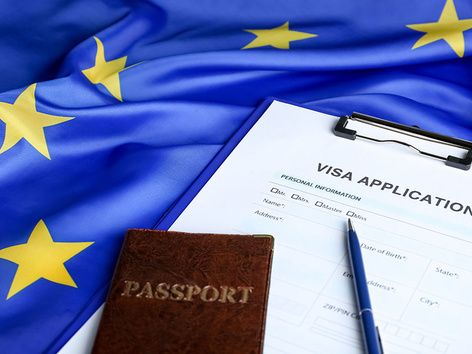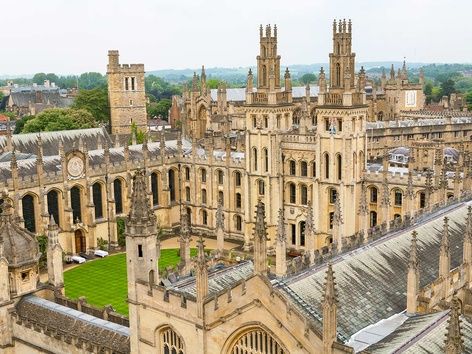How to buy property in the UK for expats in 2024: a detailed guide
Table of contents
- Can foreigners buy property in the UK?
- How much tax do you have to pay when buying a property in the UK?
- The amount of SDLT levied on the purchase of real estate by a foreigner
- Additional costs for buying real estate in Great Britain
- Legal requirements and restrictions when buying real estate
- Ways of financing the purchase of real estate in Great Britain
- What requirements can British banks impose on foreigners when issuing a mortgage?
- How to buy property in Great Britain as an expat: 5 easy steps
- Useful tips for foreigners planning to buy property in the UK
- Does buying property in the UK give you residency?
- Is buying property in the UK a good investment?

The potential for high returns and a historically stable market make the UK an attractive option for foreign investors. Find out more about the amount of taxes to be paid when buying real estate in the UK, the amount of SDLT when buying real estate by a foreigner, additional requirements and much more
Buying property in the UK, especially for investment purposes, is not an impulse buy, but a considered and considered step. Therefore, before preparing funds, it is important to carefully weigh everything: choose the region that has the greatest demand, study the tax system for non-residents, find a local real estate agent, and also analyze the peculiarities of the legal process, requirements for the procedure for buying real estate, and possible financing options.
Of course, at first glance, it may seem difficult and even impossible, but the advice of an experienced lawyer and our short guide can significantly simplify the procedure for buying real estate in Great Britain.
Can foreigners buy property in the UK?
Non-residents are allowed to buy property in the UK. International investors have two methods of registration of the object:
1. Personal purchase in your own name or in the name of a partner.
2. Buying through a UK limited company.
How much tax do you have to pay when buying a property in the UK?
Like UK citizens, foreign investors buying property in the UK will have to pay Land Tax (SDLT).
SDLT is a tax levied on the purchase of a property whose value exceeds a certain price threshold. The rate depends on the value of the home and whether you are buying personally or through a company.
In addition, add a mandatory 3% fee if you are purchasing an additional residential property.
Foreigners also pay a fee of 2% if they buy residential property in Northern Ireland or England.
The amount of SDLT levied on the purchase of real estate by a foreigner
If you are buying a property in your own name as an individual, depending on the value of the house, the current SDLT rates will be as follows:
- value up to £250,000 - 0%;
- from £250,001 to £925,000 – 5%;
- from £925,001 to £1.5 million - 10%;
- over £1.5 million – 12%.
Also, the size of the rates depends on whether you plan to rent out the property or live on your own.
The rate of SDLT when buying a property through a limited company is 3%, if the value of the home is over £500,000 then the single rate of tax will be 15%. This fee amount is applied regardless of whether the property will be used for residential or commercial purposes.
Additional costs for buying real estate in Great Britain
In addition to taxes, UK residents and foreigners will have to pay other fees when buying real estate, such as court fees, mortgage costs, etc.
Researching all the additional costs is essential to determine if the investment is financially viable and meets your goals.
Legal requirements and restrictions when buying real estate
In addition to tax costs, before buying real estate in the UK, familiarize yourself with the current legal requirements and restrictions:
1. Visa rules
When buying real estate, a foreigner is not subject to visa requirements or conditions regarding the length of stay. However, if you plan to move to Great Britain after buying a home, you will need to obtain a visa, the most common options are the following:
- Tier 1 investor visa: issued when investing £2 million or more in UK government bonds.
- General visa level 2: for company directors, entrepreneurs and investors. However, this type of permit requires a UK sponsoring employer.
The visa application and processing process usually takes 3-4 months, so plan ahead.
2. The type of real estate that a foreigner can buy in Great Britain
Foreigners, like citizens of Great Britain, have the right to buy residential real estate in the country for personal residence, as well as for renting.
In addition, you can purchase commercial real estate, such as retail, office, industrial, etc. - no restrictions.
Ways of financing the purchase of real estate in Great Britain
In Great Britain, there are three ways for foreigners to pay for the purchase of real estate:
- Mortgage - getting a mortgage from a UK bank or lender is one of the most common ways to finance a property purchase in the UK. Most UK banks offer mortgages to non-resident buyers, although you may face higher interest rates and fees than residents. Sometimes you may also need a larger down payment, usually 25-35% of the purchase price. However, investing in a stable real estate market has benefits that outweigh the costs.
- Cash purchase
If you have a sufficient amount of funds, buying real estate with cash can be easier. You will avoid the hassle of applying for a mortgage and paying interest and fees.
- Private lenders and specialized brokers
Rates may be slightly higher for first-time buyers, but they understand the unique needs of non-resident buyers and have more flexibility in their lending criteria.
What requirements can British banks impose on foreigners when issuing a mortgage?
Lending criteria for foreigners are generally more stringent and include the following:
1. The need to provide proof of income and property from your country. This will demonstrate that you can afford the monthly mortgage payments even if you have no income in the UK.
2. Have a good credit rating in your country. UK mortgage lenders will check your credit history with the major credit bureaus.
3. Be prepared to pay higher interest rates on your first purchase. Rates will depend on your loan-to-value ratio, credit profile and property type. They will improve as your financial footprint and UK credit take off.
Most mortgage loans for non-residents can be long-term or short-term.
How to buy property in Great Britain as an expat: 5 easy steps
The five most important steps when buying property in the UK:
Step #1: Search for real estate
You should find a property that interests you. Professionals can help you view properties that suit your needs, as well as advise you on the area and factors such as rental demand, capital growth, transport links, schools and amenities.
Step #2: Inspection of lawyers
To deal with the legal aspects of your purchase, you will need to hire a solicitor to check for any problems with the property, as well as deal with contracts and documents, including the Land Registry.
Step #3: Apply for a mortgage
Contact a mortgage lender and apply for a mortgage if you are not fully financing your property purchase and want to borrow money. For this, it is necessary to provide documents confirming your income and financial status.
Step #4: Signing the contract
After completing all the documents, you can sign the contract and legally commit to the purchase. After exchanging contracts, you transfer a deposit to the seller, usually 20% of the purchase price. All this is done legally, safely and securely through your UK lawyer.
Step #5: Completion of the purchase procedure
On the day of the final conclusion of the agreement, you will need to transfer the remaining amount of the real estate value, receive the keys and documents for the property. Now you can arrange to rent your property in the UK.
Usually, the process of buying a property in the UK takes from a few days to a few months.
Useful tips for foreigners planning to buy property in the UK
Tip #1: Research the market
Learn as much as you can about the local real estate market and prices in the area you are interested in. Check recent sales prices for similar properties to determine a fair price range. Learn the details of a particular property to make an informed offer.
Tip #2: Consider exchange rates
If you buy in pounds but your savings are held in another currency, fluctuations in the exchange rate can affect your purchasing power.
Tip #3: Be prepared to make decisions quickly
The British real estate market is developing rapidly. So be ready to make a quick decision if a good object drops out. Prepare financing in advance and find out the maximum price of this offer.
Does buying property in the UK give you residency?
No, the UK does not offer any residence permit schemes for property investment.
Is buying property in the UK a good investment?
Real estate in Great Britain can be an attractive investment, as its value is steadily increasing. Rental yields are also relatively high, currently averaging around 5%. Popular cities for investment include London, Manchester and Birmingham.
Investing in foreign real estate can be a useful and profitable business, but only for those who take into account all the risks, conduct thorough research and choose profitable locations and reliable developers. Buying real estate in Great Britain will provide a foreigner with a stable income, subject to the analysis of all legal requirements and factors.
Also, one of the markets that is increasingly attracting the interest of global investors is the Turkish real estate market. Read about the advantages of the Turkish real estate market here. The real estate market of Indonesia, particularly the island of Bali, attracts foreigners with its growing economy and rapid development. We talked about the prospects of investing in real estate in Bali in detail earlier.
Daria Rogova, Head of Insurance at Visit World
To move, travel or work safely in a new country, you will need travel insurance. You can apply for an extended policy on our website here.
Products from Visit World for a comfortable trip:
Checklist for obtaining a visa and necessary documents in the UK;
Legal advice on immigration to the UK;
Travel insurance for foreigners in the UK;
Medical insurance all over the world.
Recommended articles
2 min
Popular
Schengen visa fee hike: how much will you have to pay to visit the EU in 2024
The EU government is planning to increase the cost of a Schengen visa due to the rising inflation rate in Europe in 2024. Learn more about the new Schengen visa fees and other important details
06 Mar. 2024
More details3 min
Travels
Oxford vs Cambridge: which city to choose for a short trip from London
The UK is famous for its historic cities with rich cultural heritage and outstanding universities. Oxford and Cambridge are prominent university cities, offering unique cultural and historical experiences. Find out more about the best places to travel from London
07 Mar. 2024
More details2 min
Residence permit
EU Blue Card: requirements and registration procedure in 2025
EU Blue Card – a residence and work permit for highly qualified specialists in the European Union countries. In 2025, the EU announced significant changes to the EU Blue Card program, aimed at simplifying employment and life for highly qualified specialists from all over the world. Find out what benefits the card provides, which countries issue it, the requirements that must be met to obtain a permit, as well as the package of documents for obtaining a permit
10 Mar. 2025
More details1 min
Popular
ITB Berlin 2024: Visit World took part in the exhibition for the second time
ITB Berlin is the largest international trade fair for the travel industry. This year Visit World is taking part in it for the second time. We will tell you how the event is going and what is VU's goal at ITB Berlin 2024
06 Mar. 2024
More detailsAll materials and articles are owned by VisitWorld.Today and are protected by international intellectual property regulations. When using materials, approval from VisitWorld.Today is required.
